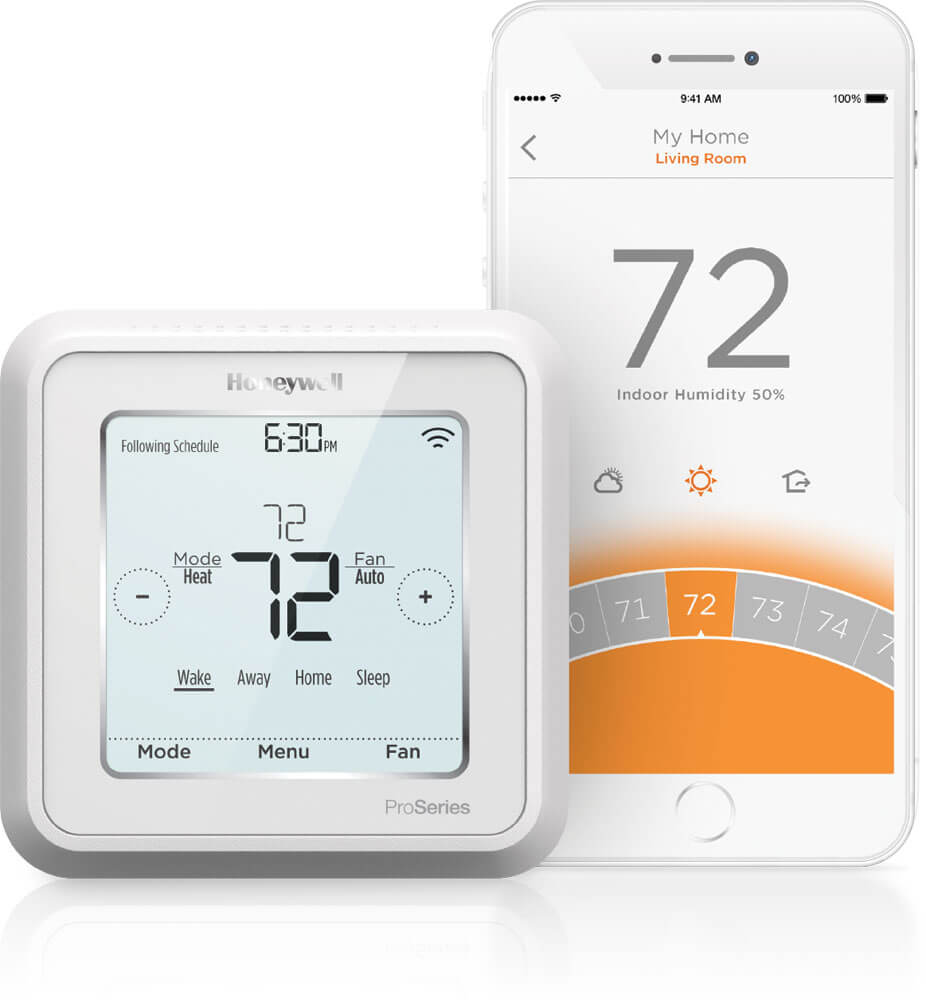Heat Pump Sales & Installation in DE, PA, & MD
Call Today If You Want a New Heat Pump!
If you want a new heat pump installed this season, you have found the trusted comfort experts – Hillside! Whether you need to replace your old heat pump or a new one for a construction project, we offer free estimates on replacing and installing all heat pumps.
Switching from your old heat pumps to a new high-efficiency system can save you big bucks. You will enjoy the extra energy savings, but a new heat pump has many positive benefits.
Don’t hesitate to contact our team if you need expert heat pump sales and installed services in New Castle County, Delaware, Cecil County, MD, or Southern Chester County, PA. Keep reading below to know how a furnace can benefit your home.
If you’d like a FREE QUOTE, call Hillside Heating and Cooling today at 302-738-4144 (DE & PA) or 410-398-5879 (MD) or contact us. Hillside offers FREE estimates for new heat pump sales and installation in DE, PA, and MD.
Why You Can Trust Hillside
★ ★ ★ ★ ★
“Ever since we decided to go with a local company, and did some research, we’ve never regretted going with Hillside. They’re honest, excellent technicians and fair pricing are unrivaled!”
100% rating – Customer review by D.M. from Wilmington, DE on 06/10/20
What exactly is a heat pump?
You know, a heat pump, it’s a bit like magic. I mean, think about it. This incredible machine can take heat from one place and move it to another. It’s like having a little wizard in your home, working tirelessly to keep you comfortable.
Here’s a twist: it doesn’t create heat or cold; it just shifts it around. So, in the winter, when you’re shivering and wishing for warmth, the heat pump says, “No problem, I’ll find some heat for you.” It scours the air outside, even when it’s cold out there, and voila, it brings that heat inside to make your place cozy.
But wait, it gets even better. When the summer sun is scorching, and you’re dreaming of a cool oasis, the heat pump switches gears. It becomes your heat-exchange acrobat, taking the heat from inside and packing it outside. Suddenly, your space is refreshingly cool.
And here’s the real kicker – it’s efficient. It doesn’t just work its magic for your comfort; it’s also easy on your wallet and the environment. It doesn’t guzzle up energy like some greedy beast. No, it’s smart and savvy, using only a fraction of the energy it moves.
So, when you think about it, a heat pump is like the unsung hero of your home, quietly making your life better while saving you money and doing its part to keep the planet green. A little piece of wizardry makes you wonder, “How did I ever live without it?”
Frequently Asked Questions (FAQ) for Heat Pump Sales & Installation
How does a heat pump work? A heat pump is a remarkable device that efficiently transfers heat from one location to another, providing heating and cooling for buildings and various applications. Unlike traditional heating or cooling systems that generate heat or cold air, a heat pump operates on the principle of thermodynamic exchange. It takes advantage of the fact that heat naturally flows from warmer areas to cooler ones. In essence, a heat pump can “pump” heat in either direction, extracting warmth from the environment to heat a space during the winter or removing heat from inside to cool it during the summer. This ingenious technology reduces energy consumption and helps maintain comfortable temperatures year-round, making it a sustainable and versatile choice for climate control. In this brief introduction, we will delve into the fundamental workings of a heat pump to better understand its operation.
What are the benefits of installing a heat pump? Heat pumps are energy-efficient and environmentally friendly. They can significantly reduce heating and cooling costs compared to traditional HVAC systems. They also offer year-round climate control and dehumidification capabilities.
Are there different types of heat pumps? Yes, there are air-source heat pumps, which extract heat from the air, and ground-source heat pumps (geothermal), which extract heat from the ground. Ductless mini-split systems are another option, offering individual room control without ductwork.
How do I choose the right size heat pump for my home? Sizing a heat pump requires a professional assessment. Factors such as the size of your home, insulation, climate, and heating and cooling needs all play a role. A qualified HVAC technician can perform a load calculation to determine the appropriate size.
What’s the expected lifespan of a heat pump? Heat pumps typically have a lifespan of 15 to 20 years with proper maintenance. Regular maintenance is essential to ensure longevity and efficiency.
Are heat pumps suitable for very cold climates? Air-source heat pumps may experience reduced efficiency in extremely cold temperatures, but many modern models are designed to work efficiently even in sub-freezing conditions. In colder climates, ground-source heat pumps may be a more reliable option.
What’s the installation process like, and how long does it take? Installation time varies depending on the type of heat pump, your HVAC system’s complexity, and your home’s size. On average, it may take a few days to complete the installation. Professional installers will ensure it’s done correctly.
Do heat pumps require any special maintenance? Yes, regular maintenance is essential. This includes cleaning or replacing filters, checking refrigerant levels, and inspecting components. It’s advisable to schedule annual maintenance with a qualified technician.
Are there any incentives or rebates available for heat pump installations? Check with local and federal programs to see what’s available in your area. Read this post about upcoming federal rebates.
Can I use my existing ductwork with a heat pump? In some cases, existing ductwork can be used with a heat pump, but it should be inspected for compatibility and potential leaks. Ductless mini-split systems are also an option if ductwork is a concern.
Remember that when considering a heat pump for your home, it’s crucial to consult with a qualified HVAC professional to ensure you make an informed decision and receive a proper installation.
New Heat Pump Benefits
- Energy Efficiency: Heat pumps are highly energy-efficient, as they transfer heat rather than generate it. They can produce up to 3 units of heat for every 1 unit of electricity, reducing energy consumption and lowering utility bills.
- Cost Savings: Lower energy consumption reduces heating and cooling costs over time, potentially saving homeowners a significant amount of money.
- Year-Round Comfort: Heat pumps provide heating and cooling, making them suitable for maintaining comfortable indoor temperatures throughout the year.
- Environmental Friendliness: Heat pumps produce fewer greenhouse gas emissions than traditional heating systems, contributing to a smaller carbon footprint and better environmental sustainability.
- Consistent Temperature: Heat pumps deliver consistent heating or cooling, eliminating the temperature fluctuations associated with some other systems.
- Zoning Capabilities: Ductless mini-split heat pumps allow for individualized control of rooms or zones, increasing comfort and energy efficiency.
- Quiet Operation: Many heat pumps operate quietly, making them a peaceful choice for maintaining indoor comfort.
- Long Lifespan: With proper maintenance, heat pumps can have a longer lifespan than other HVAC systems, typically around 15-20 years.
- Versatility: Heat pumps can be used for various applications, including residential heating and cooling, commercial HVAC systems, and pool heating.
- Reduced Dependency on Fossil Fuels: Heat pumps reduce reliance on fossil fuels like natural gas or oil, subject to price fluctuations and supply concerns.
- Improved Indoor Air Quality: Heat pumps can include air filtration and dehumidification features, contributing to better indoor air quality.
- Compatibility with Renewable Energy: Heat pumps can be paired with renewable energy sources like solar panels to reduce energy costs and environmental impact further.
- Incentives and Rebates: Many regions offer incentives, tax credits, and rebates to encourage installing energy-efficient heat pump systems, providing financial benefits to homeowners and businesses.
- Low Maintenance: Heat pumps generally require less maintenance than other heating and cooling systems, but regular professional servicing is still recommended for optimal performance.
- Enhanced Resale Value: Installing an energy-efficient heat pump can increase the resale value of your home or property.
It’s important to note that the specific benefits of a heat pump can vary depending on factors like the climate in your area, the type of heat pump system chosen, and the quality of installation and maintenance. Consulting with a qualified HVAC professional is advisable when considering the installation of a heat pump to determine the best fit for your needs.
Smart Controls
Control your thermostat via an app on your mobile devices.
You can use smart controls and thermostats with your heat pump to enhance convenience, energy efficiency, and control over your heating and cooling system. Here are some ways you can utilize smart controls with a heat pump:
- Smart Thermostats: Install a smart thermostat compatible with your heat pump system. These thermostats offer features like remote temperature adjustment through smartphone apps, scheduling, and learning algorithms that adapt to your preferences. Some popular smart thermostat brands include Nest, Ecobee, and Honeywell.
- Voice Control: Many smart thermostats are compatible with virtual assistants like Amazon Alexa, Google Assistant, and Apple HomeKit. This allows you to adjust your heat pump settings using voice commands, making it even more convenient.
- Geofencing: Smart thermostats can use your smartphone’s location to determine when you’re approaching home or leaving. They can then adjust the temperature settings to maximize comfort and energy savings.
- Energy Usage Tracking: Smart thermostats often provide insights into your energy usage patterns, helping you make informed decisions about optimizing your heat pump’s efficiency.
- Integration with Smart Home Systems: You can integrate your heat pump controls with other devices and systems if you have a broader smart home ecosystem. For example, you can set up automation routines that adjust your thermostat based on sensor inputs or weather forecasts.
- Remote Access: Smart controls allow you to monitor and adjust your heat pump settings remotely, which can be particularly useful when you’re away from home. You can ensure your home is at a comfortable temperature when you return.
- Alerts and Notifications: Smart thermostats can send you alerts and notifications about important events, such as maintenance reminders or if your system is experiencing issues.
Using smart controls with your heat pump adds convenience and helps you optimize energy usage, reduce utility bills, and maintain a comfortable indoor environment. Check compatibility between your heat pump model and the specific smart control system you plan to use.
Smart thermostats will save you money.
- Greater control over your heating schedule
- Monitor and maintain a comfortable temperature.
- Set up geo-locations so your heating automatically turns off when you leave home.
- Learning your commute times and preparing your home’s temperature in time for your return
- Turning off automatically when you leave the house
- Making ad-hoc changes, should there be a drastic change in temperature throughout the day
Consistent Heating & Cooling
Overall, heat pumps can provide consistent heating and cooling for many homes. Still, it’s essential to select the right type for your climate and ensure proper installation and maintenance to maximize their performance and efficiency. Consulting with a professional HVAC technician can help you make the best choice for your specific needs.
The Hillside Maintenance Plans
Keeping Your Paws Comfy All Year Round
The Hillside Maintenance Plans are designed to prevent minor problems from turning into major issues! Extend the life of your equipment, reduce the need for costly repairs, and increase the performance of your heating and cooling systems while lowering your utility bills.




